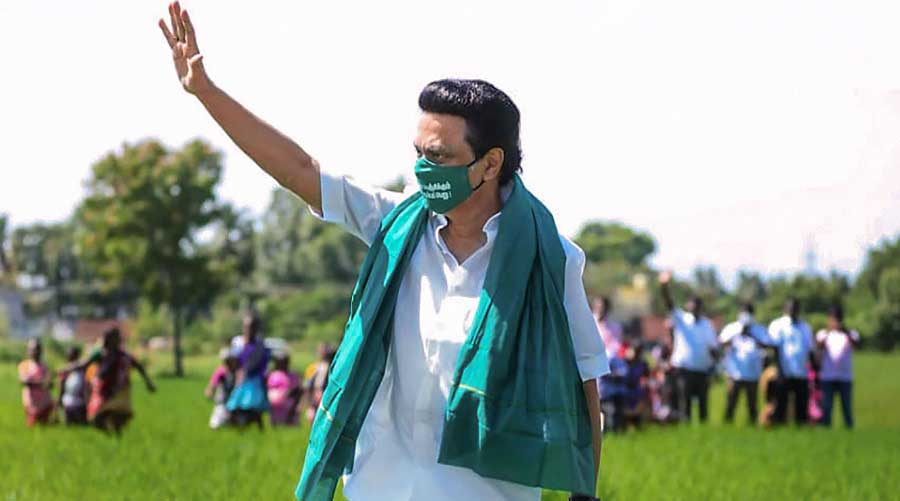The Narendra Modi government faced pressure from both electoral ally and foe on Sunday to vote for the UNHRC resolution voicing concern over the “deteriorating human rights situation” in Sri Lanka, after Colombo claimed India had promised support during Tuesday’s vote.
Referring to the claim by Sri Lanka foreign secretary Jayanath Colombage, DMK chief M.K. Stalin said this had shocked all Tamils.
“The Government of India should never take any stance that means injustice for Sri Lankan Tamils,” he said, adding that the Prime Minister should take steps for a probe by the International Court of Justice into Sri Lanka’s actions.
Stalin claimed New Delhi had over the past decade always voted against Colombo in the matter of Sri Lanka’s rights record.
This is only partially correct. During the seven times the matter came up since the end of the Sri Lankan civil war, India has voted once with Colombo, twice against it and abstained once.
During the abstention, India had argued that the resolution did not take into account the reconciliation measures Sri Lanka had adopted. The last three resolutions were adopted without a vote as the Sri Lankan government had co-sponsored them.
The PMK, a BJP ally in the AIADMK-led coalition for the Tamil Nadu Assembly elections, too has demanded that India vote in favour of the UNHRC resolution.
The resolution urges Colombo to undertake a thorough and impartial investigation and, if necessary, prosecution relating to all the allegations of gross human rights violations and serious breaches of international humanitarian law.
There has been no official word from the external affairs ministry on how India will vote on Tuesday.
When the damning report of the Office of the UN High Commissioner for Human Rights was presented to the UNHRC last month, India’s permanent representative to the UN in Geneva had referred to New Delhi’s consistent position supporting Sri Lanka’s unity and territorial integrity.
The official had also called for the full implementation of the 13th Amendment conceived in the India-Lanka Accord of 1987, which provides for power-sharing with provincial councils.











